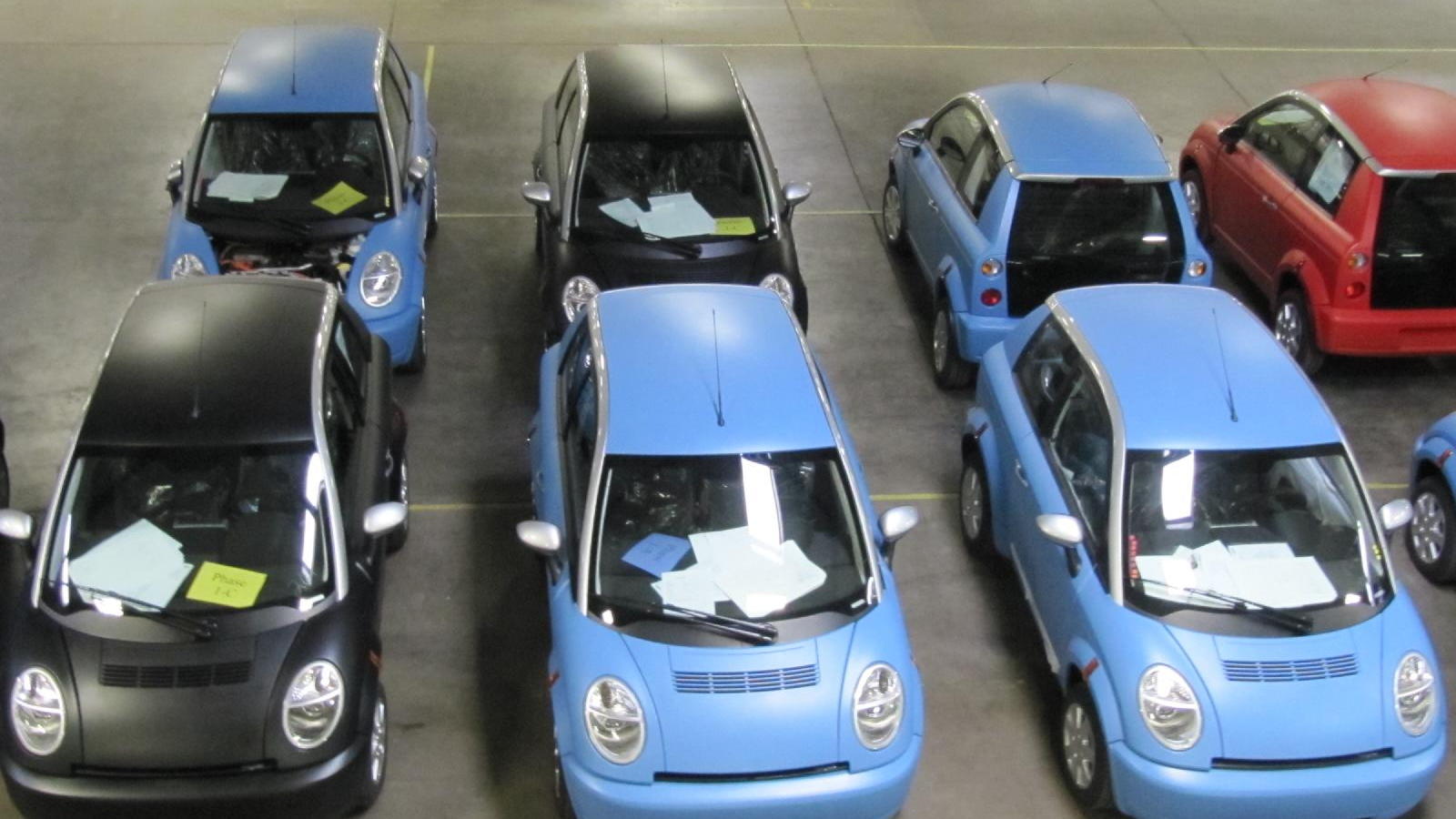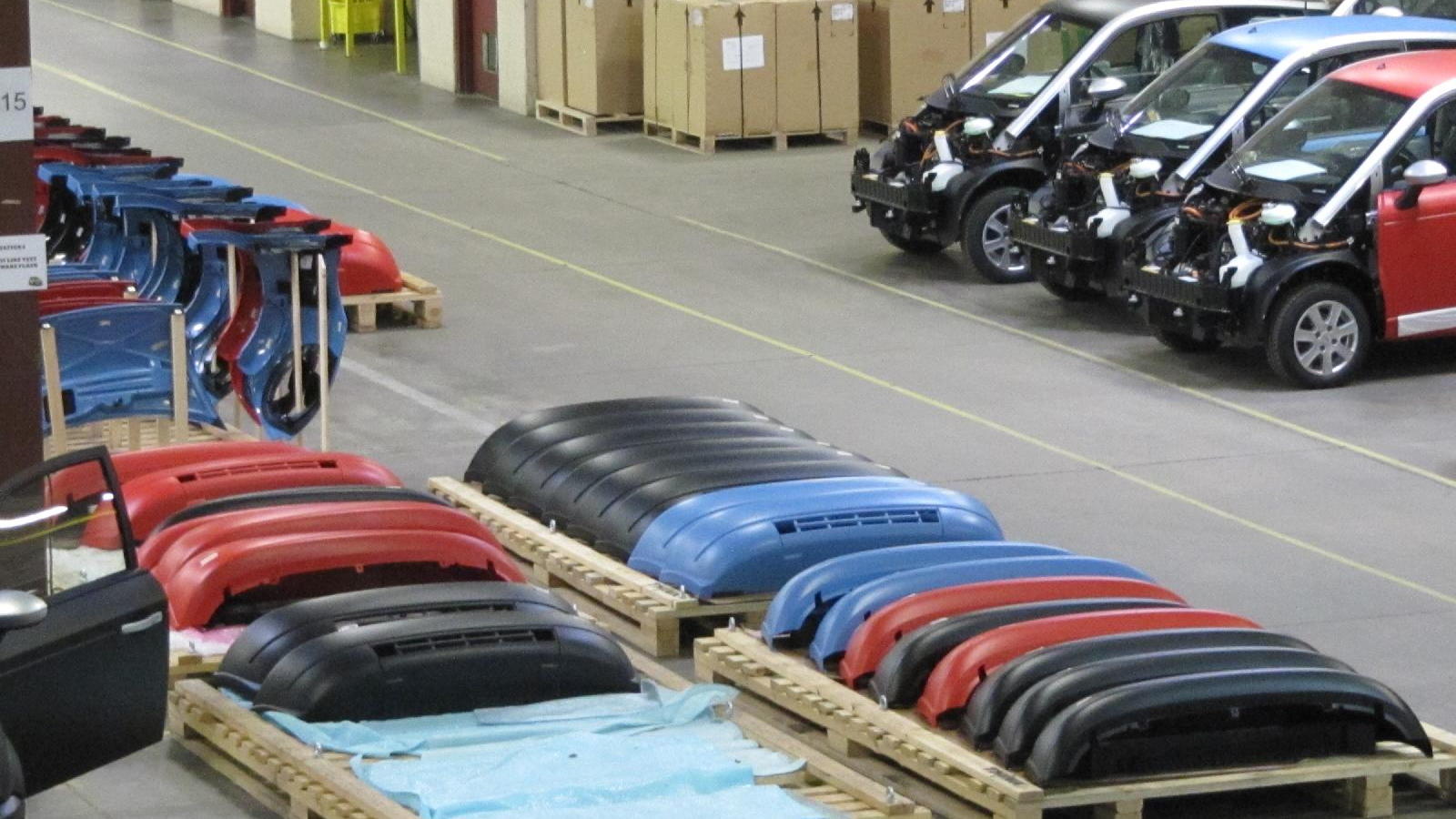Back in January, we toured the Think electric-car assembly facility in Elkhart, Indiana, "the RV capital of the world."
We got some striking photos of hundreds of the City electric two-seater cars that Think was gearing up to sell, assembled in the U.S. out of kits shipped from the manufacturing facilitiy in Finland that built the cars for other markets.
But what's happening with Think four months later? The signs are mixed, from cloudy to worrisome.
After providing sales figures for the first three months of the year--27 in sold in March, for a total of 95 sold since December--Think never responded to our calls and e-mails for April sales numbers for the City.
Today, Think's Brendan Prebo finally told us we won't be getting any more monthly sales figures. "Given that we're selling in very limited markets," he wrote, "we don't see the value in giving out monthly sales numbers."
Not an encouraging sign, if Think wants to be perceived as a "real" carmaker. Every auto manufacturer that sells in the States issues monthly sales reports, no matter how grim they may be.
Well, there is one exception: Tesla Motors. That company only reveals the cars it's sold in quarterly filings with the Securities and Exchange Commission.
But Tesla faces a sales slump for several months next year, as it sells the 2,500 Roadsters England's Lotus will build for it, and waits for its 2012 Tesla Model S all-electric sports sedan to roll off the lines--sometime in the second half of 2012, it promises.
But there's more. On May 10, lithium-ion cell manufacturer Ener1 revealed on its quarterly earnings call--and in the Q&A that followed--that it had written down the value of its Think shares to zero and returned them to the company.
Ener1 supplied battery components to Think, and had taken its equity share in the company's reorganization after an early 2009 bankruptcy. The 31-percent share of the company had been carried on Ener1's books at $73 million.
Ener1 executives said on the call that while consumer acceptance of electric cars was good, and the driving experience was key, the high cost of battery electric vehicles continued to be a hindrance, and would result in slower-than-predicted adoption rates.
Charles Gassheimer, Ener1's CEO, said it anticipated a debt-for-equity swap in Think after that company was recapitalized. He also noted that Ener1 had become more involved in Think's management and operations last year.

Think City assembly plant, Elkhart, Indiana, Jan 2011
The company came to recognize, he said, that, "Think needed a new management team to perform a thorough analysis of the structural challenges, costs, usage patterns, consumer behavior and distribution for the Think and the EV industry more broadly."
He further indicated that Think had a new investor, and alluded to a new joint venture involving Think that would be announced during the second quarter--in other words, before June 30.
We contacted Think's Prebo to ask about the impact of the Ener1 announcement. Here's his response, in total:
In all fairness to the other members of the media that have sent us inquiries, I can't comment on your questions at this time. We are anticipating a significant announcement within the next 10 days that we think will address the current round of questioning.
So, within two weeks, Think will make an announcement to clarify their capital structure, any management changes, and their revised business goals for electric-car production and sales. Maybe.
Meanwhile, we can't help but wonder whether the time for small startups to make an impact in the global electric-car market has already passed.
More to come ...
[Automotive News (subscription required)]
+++++++++++



















